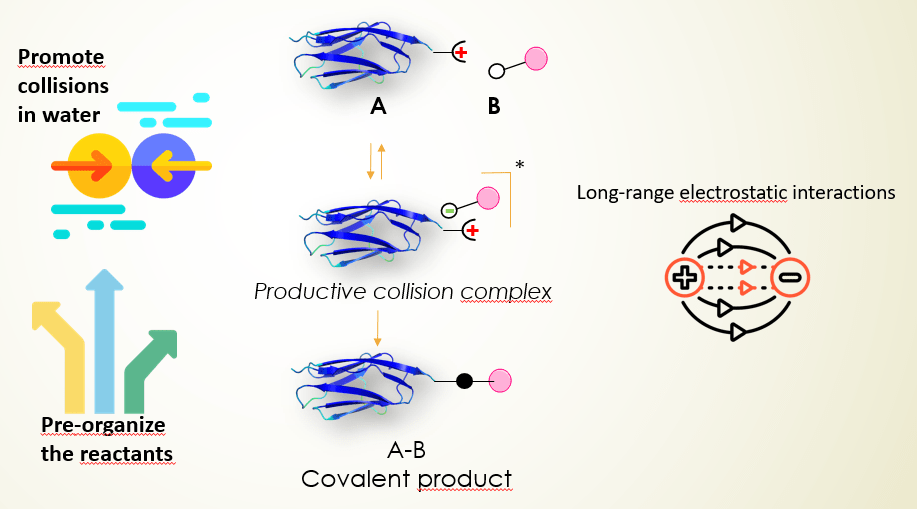The modification of protein electrostatics by phosphorylation is a mechanism used by cells to promote the association of proteins with other biomolecules. In this work, we show that introducing negatively charged phosphoserines in a reactant is a powerful means for directing and accelerating the chemical modification of proteins equipped with oppositely charged arginines. While the extra charged amino acid residues induce no detectable affinity between the reactants, they bring site-selectivity to a reaction that is otherwise devoid of such a property. They also enable rate accelerations of four orders of magnitude in some cases, thereby permitting chemical processes to proceed at the protein level in the low micromolar range, using reactions that are normally too slow to be useful in such dilute conditions.
This paper reports outstanding accelerations for native chemical ligation. The method is of interest for accelerating the production of peptides and proteins of medical interest.
